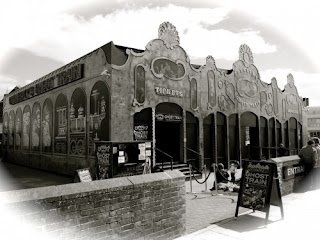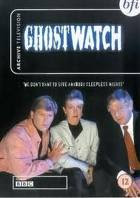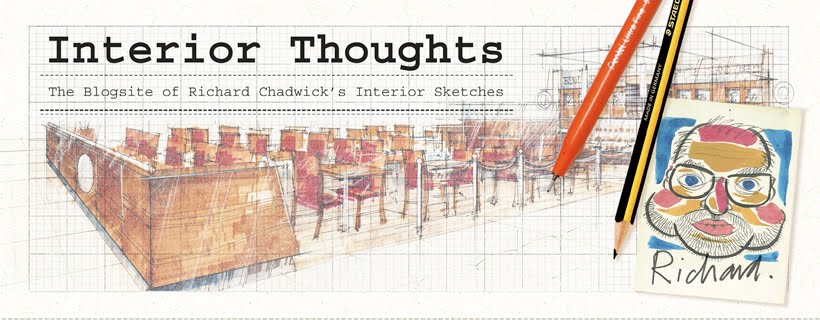...well it wasn't in the evening and the event lasted little more than ten minutes, but it was one of the most impressive pieces of theatre that I had experienced for a long long time. I had read a review early in the year of a show entitled 'Dystopian Wonders' appearing at the Lowry Theatre, Salford, last May - which I'd missed. Dammit, it sounded wonderful - "a morbid show-woman and a sinister preacher invite you to their bizarre exhibition of curious nameless bodies" ...an installation? An event? A walk-through theatrical experience? And who was Maria Carnesky, the show-woman who had produced it? The theatrical experience that breaks away from the confines of the proscenium arch convention has always interested me, from the radical street-theatre of post-revolution Russia and the dynamics of the Bauhaus experiments to the Happenings in New York in the Sixties and contemporary art installations. So when we found out that Carnesky's Ghost train had now found a permanent home in Blackpool opposite the South Pier we headed off to find it.

Housed in a single story building with a quasi Victorian fairground side-show front, the conductor invites you to "Pay your money and step right in - not for the faint-hearted, dear!". We walk through the curtain into a station waiting room somewhere in the Balkans in 1910 - faded missing women posters adorn the walls, along with destination boards to exotic cities. The clock-face on the wall swings open and a figure emerges (the missing girls mother?) to relate the back story to the adventure. Screams are heard, doors bang open and the old woman appears, to take you by the hand and guide you into the waiting train, stroking your hand and staring at you intently. This is no ordinary ghost train ride...

The ride then takes you into another world, the train running on a continuous loop through the darkness; actresses - the missing women - appear and re-appear in different guises, different stages of distress, different tableaux appearing as the story unfolds. Unnerved, you escape from the train at its destination, walking to the exit past the ghosts as they take their good-byes around you. As an experience I found it exhilarating, a most enjoyable piece of (promenade?) theatre. Peopled by, presumably, drama students, it seemed to me a most effective way of reconciling a fairly intense dramatic experience with real life setting. And where else would you expect to find a Ghost train other than within a fairground?

Real life versus T.V. reality shows - I hate them, vain attempts to elevate the relatively mundane experience of the everyday to the level of high drama. But what if it works the other way around... what if high drama appears under the guise of an everyday straightforward investigation? What if the concept is inverted? I can still remember the furor 'Ghost Watch' caused when aired on BBC 1 on October 31st, 1992. A nice friendly Saturday night show on ghost watching hosted by Michael Parkinson and Sarah Greene - what could possibly go wrong? Filmed weeks earlier, the narrative was presented as a live transmission, scaring the wits out of over 12 million viewers and resulting in 30,000 phone-calls to the BBC within an hour and the programme subsequently being banned from being re-shown, meriting its own entry on Wikipedia. Reality T.V.? maybe the public can't cope with too much realism after all... maybe the ghosts are still in the machines...
For more information on Carneskys Ghost Train visit http://www.carneskysghosttrain.com/ - they have just re-jigged the web-site. Personally I preferred the earlier version done in the black/white jerky format of a silent movie, but then I'm not a web designer so what do I know ? You should also visit http://www.carnesky.com/ for more information on the wonderful Maria Carnesky and her productions. If you want to watch 'Ghost Watch' it's available on a DVD under the imprint of the BFI -British Film Institute, an indication perhaps of how highly it is regarded ...and don't say that you haven't been warned.

Housed in a single story building with a quasi Victorian fairground side-show front, the conductor invites you to "Pay your money and step right in - not for the faint-hearted, dear!". We walk through the curtain into a station waiting room somewhere in the Balkans in 1910 - faded missing women posters adorn the walls, along with destination boards to exotic cities. The clock-face on the wall swings open and a figure emerges (the missing girls mother?) to relate the back story to the adventure. Screams are heard, doors bang open and the old woman appears, to take you by the hand and guide you into the waiting train, stroking your hand and staring at you intently. This is no ordinary ghost train ride...

The ride then takes you into another world, the train running on a continuous loop through the darkness; actresses - the missing women - appear and re-appear in different guises, different stages of distress, different tableaux appearing as the story unfolds. Unnerved, you escape from the train at its destination, walking to the exit past the ghosts as they take their good-byes around you. As an experience I found it exhilarating, a most enjoyable piece of (promenade?) theatre. Peopled by, presumably, drama students, it seemed to me a most effective way of reconciling a fairly intense dramatic experience with real life setting. And where else would you expect to find a Ghost train other than within a fairground?

Real life versus T.V. reality shows - I hate them, vain attempts to elevate the relatively mundane experience of the everyday to the level of high drama. But what if it works the other way around... what if high drama appears under the guise of an everyday straightforward investigation? What if the concept is inverted? I can still remember the furor 'Ghost Watch' caused when aired on BBC 1 on October 31st, 1992. A nice friendly Saturday night show on ghost watching hosted by Michael Parkinson and Sarah Greene - what could possibly go wrong? Filmed weeks earlier, the narrative was presented as a live transmission, scaring the wits out of over 12 million viewers and resulting in 30,000 phone-calls to the BBC within an hour and the programme subsequently being banned from being re-shown, meriting its own entry on Wikipedia. Reality T.V.? maybe the public can't cope with too much realism after all... maybe the ghosts are still in the machines...
For more information on Carneskys Ghost Train visit http://www.carneskysghosttrain.com/ - they have just re-jigged the web-site. Personally I preferred the earlier version done in the black/white jerky format of a silent movie, but then I'm not a web designer so what do I know ? You should also visit http://www.carnesky.com/ for more information on the wonderful Maria Carnesky and her productions. If you want to watch 'Ghost Watch' it's available on a DVD under the imprint of the BFI -British Film Institute, an indication perhaps of how highly it is regarded ...and don't say that you haven't been warned.

No comments:
Post a Comment